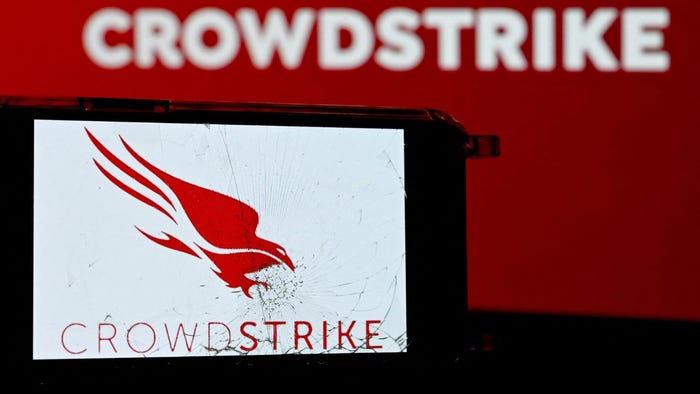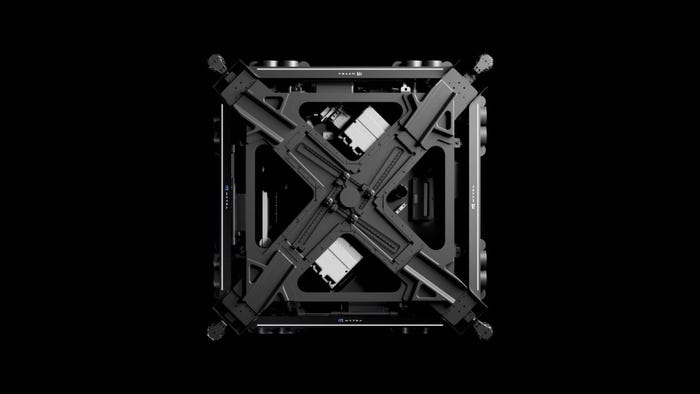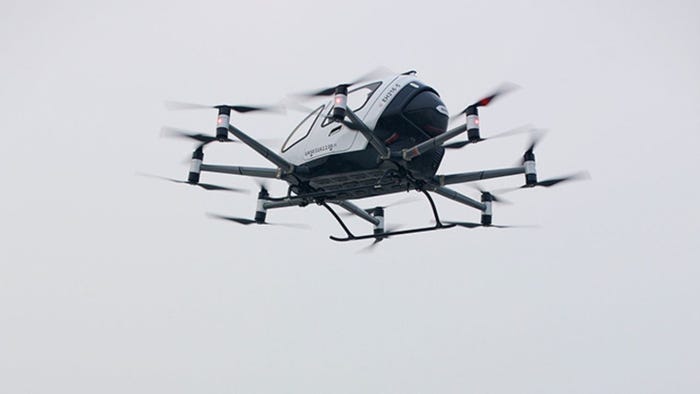How AI is Changing Retail
Lenovo’s EMEA Infrastructure CTO shares insight on how retailers can use AI to deliver deeper customer insights while raising operational efficiencies
.png?width=1280&auto=webp&quality=95&format=jpg&disable=upscale)
T’is the season to shop – and Americans did so in record numbers.
According to the National Retail Federation, an all-time high of 200.4 million U.S. shoppers opened their wallets over the five-day Thanksgiving weekend, which starts from Thanksgiving Day to Black Friday and through to Cyber Monday. Holiday spending is expected to hit a record of up to $967 billion.
AI stands to further change the game for retailers and consumers, according to Per Overgaard, CTO EMEA at Lenovo’s Infrastructure Solutions Group (ISG). Here are his insights on the changing retail landscape.
How AI is shaping the retail landscape, particularly for managing high-demand events like Black Friday and Cyber Monday:
Artificial intelligence (AI) is transforming the entire retail experience. Seamless access to real-time analytics is what will define a retail leader from its competitors on days like Black Friday and Cyber Monday. Shopper behavior analytics not only provides retailers with the ability to deliver personalized services, but can also empower retailers to use dynamic pricing or real time promotions to increase consumer spend on these days.
Across the board, AI can support retailers in terms of lowering costs, preventing losses and optimizing business processes, which are crucial differentiators during all-important shopping events like Black Friday and Cyber Monday. It enables retailers to identify and solve problems, and improve efficiency by advancing the functions of the store.
How AI is used for in-store planning to optimize both the customer experience and operational efficiency:
Shopper behavior analytics offer retailers valuable insights to improve store planning, giving them unprecedented detail when it comes to placing goods in better positions to drive sales, and improving checkout intelligence to decrease costly losses from in-store theft. AI also helps retailers deliver personalized advertising that can improve the customer experience, and also increase customer purchase totals.
In terms of operational efficiency, analytics from warehouses and stock rooms can allow retailers to be more efficient about ordering products, restocking shelves, and planning logistics effectively, which is critical as these operations become the backbone of successful sales periods. Deployed effectively, AI can provide the insights both to boost customer experience and operational efficiency, driving profits and ensuring things run smoothly on crucial days like Black Friday.
How retailers are leveraging AI and data analytics for real-time promotions and decision-making on heavy shopping days:
Tools including edge-enabled smart cameras and sensors are enabling retailers to drive rapid-fire decision-making on days like Black Friday and Cyber Monday, by understanding what customers are looking at, and what they are buying. AI empowers such organizations to analyze in-store data in real-time, providing retailers an overview of what shoppers are buying, and more crucially, what they are likely to buy next.
This allows retailers to target customers with shelf-level advertising, dynamic pricing and real-time promotions. Without these insights, retailers are effectively operating in the dark and will not be able to make intelligent decisions when it comes to real-time promotions.
American retailer Kroger is already pioneering this technology, with powerful edge AI servers in its stores that are helping to deliver the future of self-checkout. The servers are connected to high-resolution cameras in-store. An AI application monitors shoppers as they check out, running on edge servers that work in real-time.
When the edge servers spot an error, which could be anything from non-scans to ‘product switching’ where shoppers swap stickers to scan expensive items as cheaper ones, the system reacts immediately. If a customer triggers an error, they are given a real-time ‘nudge’ in the form of a five-second video displayed on the point-of-sale terminal. If they do not respond, a shop assistant is notified.
How predictive analytics is transforming inventory management ahead of high-traffic shopping events:
Artificial intelligence, paired with IoT solutions such as cameras and beacons, has important uses in inventory management and stock control, and is particularly important in the run-up to high-traffic sales events. Analytics from warehouses and stock rooms can allow retailers to be more efficient when it comes to ordering products in advance of ‘big’ shopping days, stocking shelves and dealing with logistics issues in advance. All of this helps retailers run operations smoothly and efficiently during Black Friday.
Retail businesses must also manage complex supply chains to ensure products arrive at customers at exactly the right time. AI, paired with IoT devices, can help retailers monitor product movements, track inventory and manage logistics ahead of major shopping events.
How AI helps retailers understand and respond to customer behavior patterns during these peak shopping days:
If real-time stock levels are linked to shop floor data about purchasing trends, these insights can help the whole business become more efficient and more streamlined during peak shopping days. For instance, retailers can use data to understand the number of customers who enter the store on Black Friday and stock their floors accordingly to match this demand. This is a key differentiator for successful retailers in the lead up to busy periods, such as Christmas, and equips them for successful sales. It minimizes the chance of stock levels running low when demand is high.
Understanding customer behavior patterns also boosts ‘store intelligence’ so that retail leaders can provide richer in-store customer experiences on these crucial days, changing displays to encourage cross-departmental journeys and replicating lessons learned in one store across multiple stores to boost profits. This is critical for retailers looking to expand their operations across multiple different locations.
The major challenges retailers face in implementing AI technologies for events like Black Friday and how they overcome them:
Retailers often face many major hurdles when successfully implementing AI technologies, especially for events like Black Friday. Such challenges include AI readiness (the ability to deploy AI effectively through an organization), fears over job losses among retail staff, and data security when dealing with new AI applications.
For leaders in the sector, there is a growing awareness of the benefits of artificial intelligence in terms of providing insights into customer and employee behavior and offering personalized recommendations, but there is still a perception that implementing AI technology is complex, and that it always requires significant upfront investment. These issues are best addressed through education about the benefits of AI, and through cost-effective and seamless ways of deploying it in-store and online, such as integrating edge computing with existing camera systems.
Emerging trends in AI that will have the biggest impact on retail:
AI chatbots built on generative AI are going to become increasingly important in the sector, both inside and outside the store, with customers able to interact with chatbots to find information. Offering this digital in-store experience is increasingly important for improving customer satisfaction.
Successful retailers are increasingly integrating digital services into existing store operations, with AI and natural language processing helping retailers offer customer service options that can transcend access difficulties and language barriers. AI will also be crucial to helping retailers build an omnichannel approach, linking e-commerce with retail data to build a ‘Customer 360’ view, which enables retailers to deliver improved experiences to loyal customers.
How retailers use AI to analyze performance and plan for future events:
In the wake of major sales events like Black Friday, AI is an incredibly powerful tool when it comes to breaking down the barriers among different channels, enabling an enriched understanding of the customers, and helping retailers better understand customers to deliver improved experiences. This data is becoming increasingly crucial in the sector, and is becoming a real differentiator for forward-thinking business leaders in the coming years. According to IDC, by 2025, 20% of the top 100 global retailers will have embraced AI systems to drive business results across decisions, operations and retail planning.
This article first appeared on IoT World Today's sister site, AI Business.
About the Author(s)
You May Also Like
.png?width=100&auto=webp&quality=80&disable=upscale)
.png?width=400&auto=webp&quality=80&disable=upscale)






